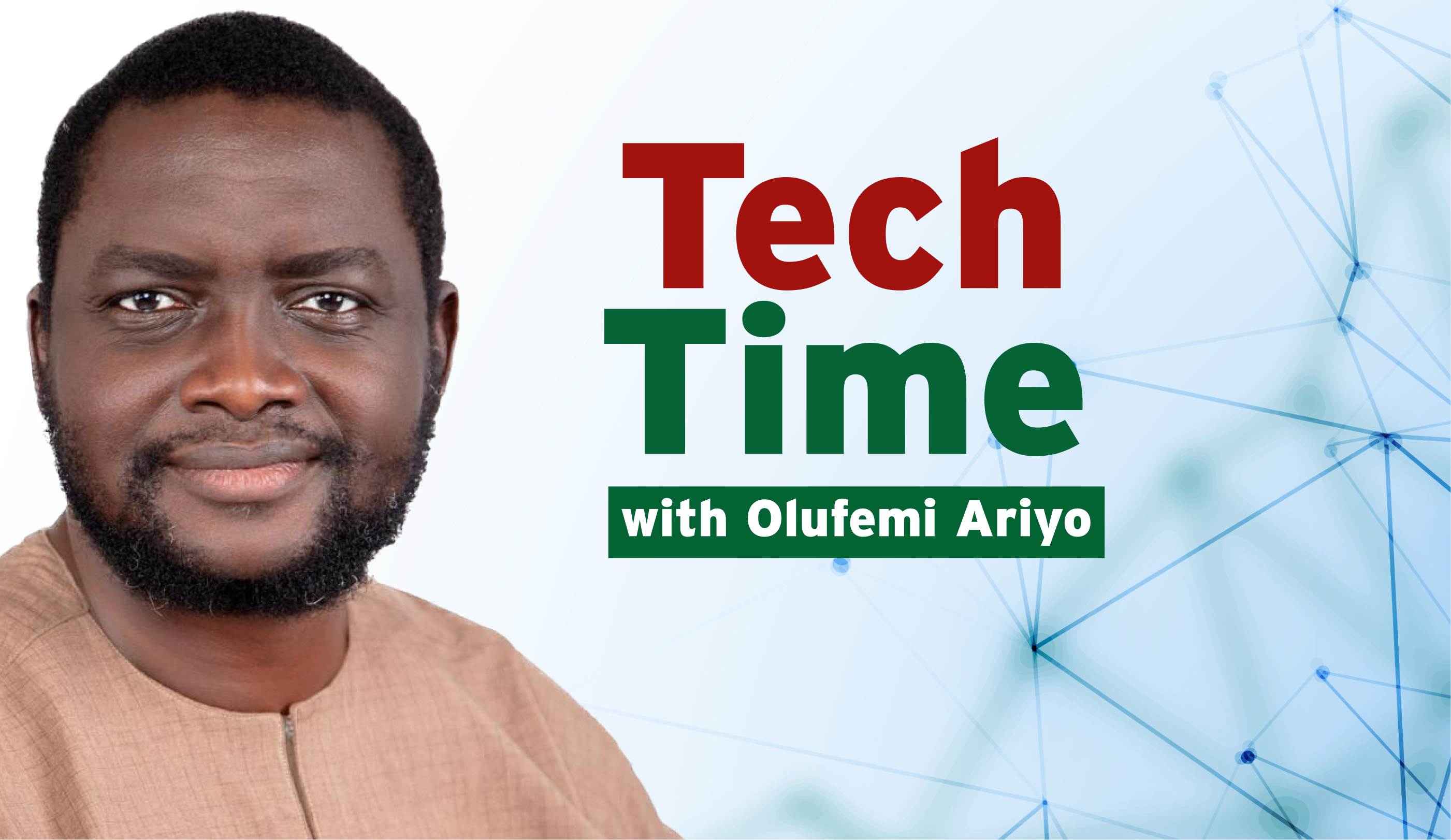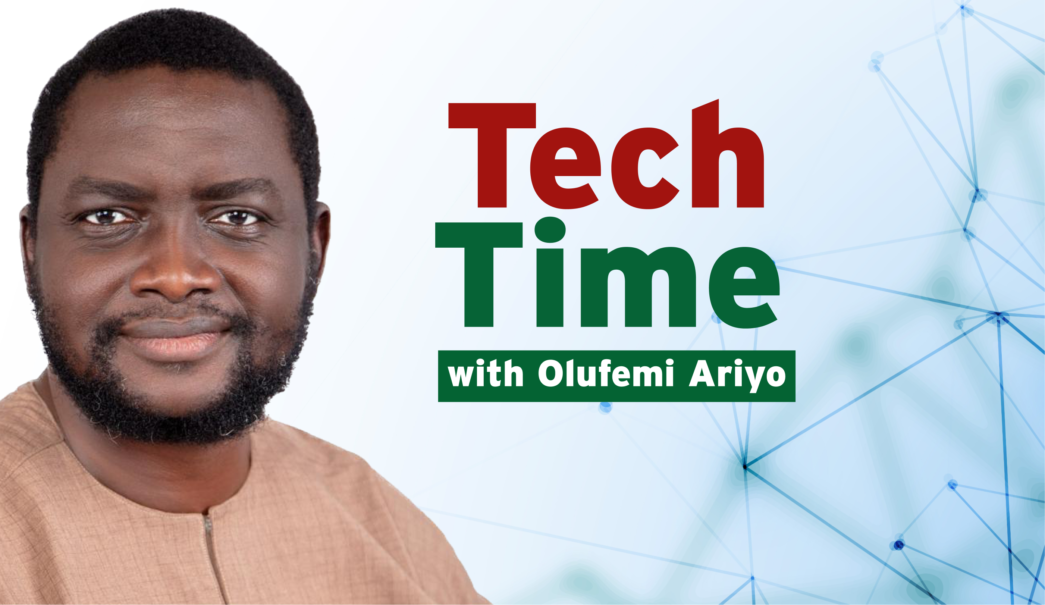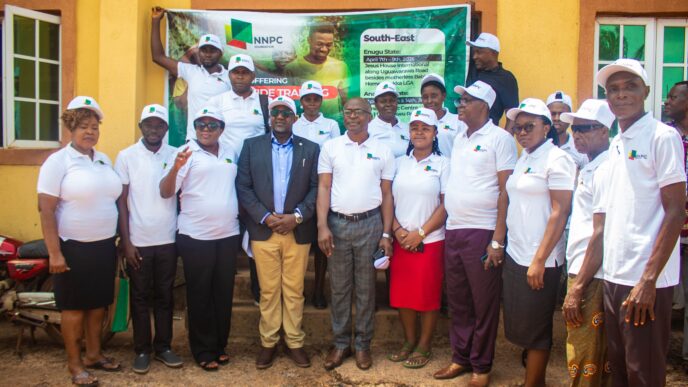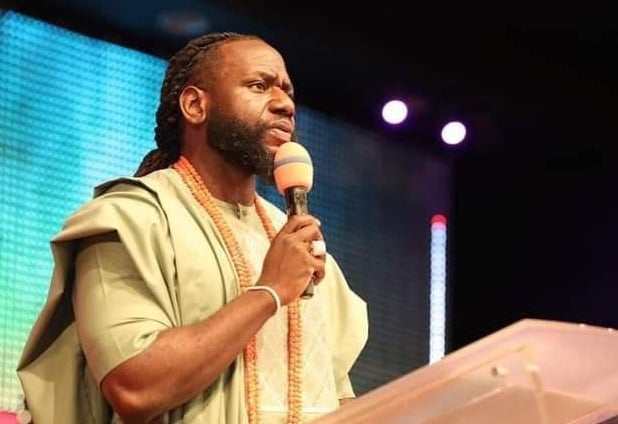Nigeria, with its vast potential and diverse culture, stands at a pivotal moment in its history. Despite challenges like economic instability, corruption, and poor infrastructure, these obstacles present opportunities for growth. To make Nigeria great, we must embrace a vision centred on good governance, entrepreneurship, health, sustainability, and unity. We need transparent leadership, innovative solutions, and inclusive opportunities that empower all citizens. Prioritising healthcare, environmental protection, and national security will lay the groundwork for a prosperous and unified future. By focusing on these pillars, Nigeria can rise as a strong, equitable, and progressive nation for generations to come.
The Role of Vision: A Dream for Nigeria
A vision is the beacon that guides the journey of a nation, outlining the possibilities of what can be achieved when a collective effort is directed toward a common goal. The American Dream has long stood as a global symbol of hope, embodying the belief that anyone, regardless of their background, can achieve success through hard work, perseverance, and an unwavering commitment to the ideals of freedom and opportunity. This dream, rooted in the ideals of equality and self-determination, has fuelled America’s rise to become the world’s superpower. Its influence can be seen in the way millions of individuals from different corners of the globe have sought to build better lives, contributing to the nation’s wealth, power, and global leadership.
For Nigeria, a country rich in potential and resources, there is a pressing need for a similarly compelling vision—a vision that resonates with every Nigerian, from the lively streets of Lagos to the tranquil landscapes of Jos, from the oil fields of the Niger Delta to the highlands of the North. This vision must transcend geographical and ethnic boundaries, speaking to the hearts of all Nigerians, and inspiring them to work collectively for a prosperous future. It is a vision that prioritises education, innovation, and economic self-sufficiency—values that can catalyse national growth and set Nigeria on a path of greatness.
Advertisement
Much like the American Dream, Nigeria’s vision should centre on the belief that every Nigerian has the potential to succeed and contribute to the nation’s development, regardless of their social or economic background. It should be a dream that moves beyond the confines of mediocrity, challenging individuals and communities to rise above adversity, harnessing the power of education and skills to encourage a culture of innovation and entrepreneurship. In this dream, Nigeria becomes a land not just of challenges but of boundless opportunities, where citizens are empowered to build industries, create jobs, and rise through hard work and determination. This vision must also recognise the importance of promoting inclusivity—ensuring that every Nigerian, regardless of gender, ethnicity, or region, has access to the tools necessary for success. It is not enough to dream of prosperity; we must ensure that this prosperity is shared, that every citizen has the opportunity to participate in the nation’s growth.
To transform Nigeria into a nation that reflects this vision, we need a collective mindset shift—a commitment to the values of good governance, education, entrepreneurship, sustainability, and unity. The American Dream has been a catalyst for progress in America, but Nigeria’s dream must be uniquely tailored to the realities of its people, rooted in its own rich cultural heritage and the vast potential of its natural and human resources. In the same way that the American Dream has become an enduring symbol of hope and possibility, Nigeria must cultivate a vision that inspires more than just its citizens, but the world. A vision that propels Nigeria forward, fosters national pride, and ensures that each Nigerian has the chance to achieve greatness—both individually and collectively. Only then will we see Nigeria rise to its rightful place as a leader in Africa and the world.
Loyalty: The Backbone of National Progress
Advertisement
Vision alone is not sufficient to propel a nation toward greatness. It requires a deep sense of loyalty—a loyalty to the ideals of nationhood, to one’s country, and most importantly, to the collective good. Loyalty is the glue that binds the vision together, transforming it from a mere aspiration into a tangible reality. When citizens exhibit unwavering loyalty to their country, they not only support the vision but actively contribute to its realisation through their actions and commitments.
The loyalty required for national progress must go beyond mere words or superficial declarations. It must manifest in everyday actions, in decisions that prioritise the country’s long-term well-being over individual or sectional interests. Loyalty to Nigeria should be reflected in every citizen’s commitment to upholding the values of honesty, integrity, and national pride. This kind of loyalty promotes unity, trust, and cooperation among Nigerians, making it possible to overcome the nation’s deepest challenges, such as corruption, inequality, and injustice. If loyalty to Nigeria becomes the driving force of our actions, we will create a society where the interests of the country are prioritised over personal gains. This loyalty will inspire citizens to serve the nation with diligence and selflessness, and encourage a collective effort toward building a just, fair, and prosperous society.
Looking at examples from around the world, one country that stands as a testament to the power of loyalty to national vision is Singapore. Just a few decades ago, Singapore was a small, resource-poor nation that faced immense challenges, including political instability, ethnic divisions, and limited resources. Yet, the country rose from these difficulties to become one of the world’s most prosperous and developed economies. The driving force behind this transformation was more than just a strong national vision, but a profound sense of loyalty to the country’s ideals and the collective effort of its people.
In Singapore, loyalty was cultivated through a shared commitment to the country’s development goals, regardless of ethnic or cultural background. Under the leadership of Lee Kuan Yew, Singaporeans embraced a vision of meritocracy, honesty, and hard work. The people of Singapore were fiercely loyal to the principles of good governance, national unity, and social cohesion. They supported policies that prioritised collective welfare over individual interests, and this unity of purpose allowed the country to overcome immense hurdles, including racial tensions and limited natural resources. The loyalty of Singaporeans was also evident in their commitment to public service and national progress. It was a loyalty that required them to adhere to the values of transparency, integrity, and efficiency. By placing the country’s long-term success above short-term personal gains, Singaporeans created a nation that achieved economic prosperity and became a global model for governance and development.
Advertisement
Nigeria can draw important lessons from Singapore’s success. To realise its vision of greatness, Nigeria must cultivate a similar sense of loyalty, where every citizen, regardless of tribe or religion, is committed to the national purpose. Loyalty to the country’s progress must inspire Nigerians to embrace values such as honesty, transparency, and service. This loyalty will lay the foundation for overcoming the nation’s challenges—be it corruption, inequality, or divisiveness—and enable Nigeria to rise to its rightful place as a beacon of hope in Africa. The role of loyalty is also deeply tied to building trust among citizens and between the people and their leaders. Trust is vital for the functioning of any society, and loyalty helps to build this trust. In a loyal society, people are more likely to work together toward common goals, secure in the knowledge that others share their commitment to the nation’s success.
For Nigeria, this means that loyalty should not be confined to the government or a select few; it must be a national ethos that pervades all levels of society. Whether it is in the workplace, in governance, or in daily interactions, loyalty to Nigeria’s development vision must be the driving force. Every citizen, from the streets of Lagos to the rural villages of the North, must feel personally invested in the country’s growth. When Nigerians unite in loyalty to the nation’s vision, the results will be transformative. Just as Singapore’s people worked together to build a thriving economy and a united society, Nigerians can rise above divisions and challenges to create a nation that works for all its citizens. With a shared sense of loyalty to national ideals, Nigeria can harness the power of its people and resources to achieve the greatness that lies within its reach.
Proving Our Worth: A Dogged Desire to Break Barriers
At the heart of the Nigerian spirit lies a relentless desire to prove something—to show the world that being Black is not synonymous with vices, laziness, or failure. For centuries, history has often painted a distorted image of African nations, portraying them as impoverished, dependent on foreign aid, or incapable of achieving success. These stereotypes have been reinforced by negative narratives that overshadow the immense potential within the continent. However, Nigeria, with its vibrant youth, rich cultural heritage, and entrepreneurial spirit, has the power to break this narrative and redefine what it means to be an African nation on the global stage.
Advertisement
To prove this, Nigeria must adopt a dogged approach to success—a determination that rises above challenges, embraces opportunities, and refuses to be limited by preconceived notions. Nigeria’s path to greatness will not be an easy one. It will be paved with trials, obstacles, and setbacks. But in every challenge lies an opportunity for growth, innovation, and resilience. Nigerians must learn to embrace adversity as a catalyst for progress and transformation. We must invest in key areas like education, entrepreneurship, and innovation. Education is the foundation for any great nation. It empowers individuals to rise above their circumstances, equips them with the tools to think critically, and opens the doors to new opportunities. By ensuring that every Nigerian child has access to quality education, we are planting the seeds for a future where the next generation can dream without limitations. Entrepreneurship, too, is vital to breaking the barriers of poverty and dependence. When Nigerians are empowered to create businesses, to innovate, and to build industries, they not only elevate themselves but also contribute to the national economy and global competitiveness. Through the cultivation of a culture (habit) of entrepreneurship, Nigeria can unlock the boundless potential of its people and create jobs that will transform communities.
Furthermore, innovation must be at the core of Nigeria’s vision for the future. Today, technological advancement and creative problem-solving are the keys to staying ahead of the curve. Nigerians must be encouraged to think beyond the traditional and embrace new ways of doing things. Whether it’s in technology, healthcare, agriculture, or other sectors, Nigerian youth have the ability to become world leaders in innovation. Just as the world marvels at the ingenuity of Silicon Valley, there is no reason why Nigeria cannot become the next hub of tech innovation, entrepreneurship, and creative solutions. This drive to prove our worth requires more than just action but a mindset shift. We must teach our children that they are not defined by the challenges of their environment, but by their ability to overcome them. They must know that regardless of their background, their skin colour, or their circumstances, they can achieve greatness—whether it be in science, politics, sports, or business. The message we send to our youth must be clear: they have the potential to break barriers and change the world, as long as they put their heart and mind into it.
Advertisement
Looking globally, Israel is an exemplary case of a nation that rose from the depths of adversity to become a global powerhouse, and its story offers powerful lessons for Nigeria. Just a few decades ago, Israel was a small, fledgling nation struggling to establish itself in a region fraught with conflict. With a population of fewer than 2 million, surrounded by hostile neighbours and without many of the natural resources that other nations rely on, Israel could have easily succumbed to the challenges it faced. Yet, through sheer determination and a dogged pursuit of success, Israel transformed itself into one of the world’s most innovative and economically successful nations. Central to Israel’s success was its commitment to education, technological innovation, and resilience in the face of adversity. Israel recognised early on that its greatest resource was its people, and it invested heavily in the education and training of its citizens. The country became a leader in technology and research, with innovations in fields like cybersecurity, biotechnology, and defence that have put Israel at the forefront of global advancement. The nation also promoted an entrepreneurial culture, with government policies and incentives that encouraged the development of startups and small businesses. As a result, Israel now boasts one of the highest concentrations of startups in the world, with Tel Aviv often cited as a global hub for innovation.
Israel’s rise is a testament to the power of determination and the will to prove one’s worth. Despite being surrounded by geopolitical instability, limited resources, and an existential threat, Israel has flourished by encouraging a culture of innovation, education, and national pride. Nigerians must look to Israel as an example of what is possible when a nation comes together with a shared sense of purpose and a relentless desire to succeed.
Advertisement
The challenges that Israel faced are not dissimilar to those Nigeria faces today. But if Israel can rise from the ashes of its early struggles, then Nigeria too can rise above its obstacles and prove to the world that it is a force to be reckoned with. The path will not be easy, but it is achievable with the right mindset, the right investments, and, most importantly, a dogged determination to break barriers.
Nigeria has the talent, the resources, and the spirit to achieve greatness. What is needed now is the courage to face these challenges head-on and the resolve to show the world that being Nigerian is synonymous with innovation, success, and pride. Just as Israel broke free from the chains of adversity to become a leader on the global stage, Nigeria too can rise to prominence, proving that our nation is destined for greatness.
Advertisement
Embracing Technology and Upgrading Skills
Today, technology is more than just an advantage; it is a necessity. The global economy has undergone a dramatic change, with industries becoming increasingly digitised and interconnected. Nations are no longer competing solely based on their natural resources, but rather on their ability to harness the power of technology and innovation. For Nigeria, the path forward hinges on embracing this new technological age. The future belongs to nations and individuals who can effectively integrate technology into every aspect of life—whether through artificial intelligence, machine learning, blockchain, or by simply mastering the basics of e-commerce and digital marketing.
Nigeria, with its massively growing youth population and vast potential, cannot afford to lag behind in this technological race. As the world moves toward an economy driven by digital platforms, Nigeria has the opportunity to leapfrog traditional development models by focusing on digital literacy and tech-driven industries. The youth of today will be the innovators, developers, and entrepreneurs of tomorrow, and the government must ensure they are equipped with the skills needed to thrive in the digital age. Investing in technical education and vocational training should be at the forefront of national development initiatives. By offering affordable and accessible digital education, Nigeria can unlock a vast pool of talent ready to meet the demands of the global market. The potential for economic growth through technology in Nigeria is immense. Consider how nations like Estonia, which was once part of the Soviet Union and had a similar underdeveloped background, have successfully embraced technology and emerged as global leaders in digital governance, e-commerce, and tech innovation. Estonia’s transformation is an example that should inspire Nigeria.
After gaining independence in 1991, Estonia faced major economic and infrastructural challenges, with a small population and limited resources. However, Estonia decided to embrace technology as the core of its national development strategy. The country became one of the first in the world to implement digital government services, allowing citizens to access everything from healthcare to voting online. The Estonian government’s focus on digital infrastructure, e-government services, and innovation-driven policies paved the way for the rise of a vibrant tech ecosystem. Today, Estonia is known as the “Silicon Valley of Europe” and is home to numerous successful startups, including TransferWise (now Wise) and Skype, both of which have gained international acclaim. Estonia’s remarkable journey demonstrates that, with the right policies and investments in education and technology, a country can rise above its challenges and create a prosperous, innovation-driven economy. Nigeria can draw inspiration from Estonia’s example, not only in building digital infrastructure but also in creating an ecosystem where technology and entrepreneurship can thrive hand in hand. By equipping Nigerians with the tools they need to succeed in the digital age—whether through coding boot camps, university-level tech programs, or public-private partnerships focused on technology—Nigeria can create a new wave of digital entrepreneurs, software developers, data scientists, and cybersecurity experts.
Moreover, as the world moves towards automation, artificial intelligence, and big data, there is an increasing demand for professionals who can understand, develop, and manage these technologies. Nigerians must develop the skills to match the global market’s demands. Whether it is in software development, digital marketing, data science, or cybersecurity, these fields represent vast, untapped opportunities for those willing to learn and adapt.
In addition to technical skills, Nigeria’s next generation must also embrace entrepreneurial thinking in the digital economy. Entrepreneurship in the tech industry is not just about starting a business; it is about recognising and solving problems using technology. The rise of e-commerce, fintech, and digital services has opened up new avenues for entrepreneurs to reach a global audience, and Nigeria has the potential to lead this charge in Africa. As mobile penetration increases and internet access expands, Nigerians can tap into the growing global demand for tech-driven solutions in sectors like fintech, edtech, healthtech, and agritech. To maximise the potential of these opportunities, Nigeria must also address infrastructure gaps, such as the unreliable power supply and limited internet access in rural areas. These barriers must be overcome through smart public-private partnerships that aim to deliver better connectivity and affordable internet access across the country. By making digital tools and resources accessible to all Nigerians—especially in underserved areas—the government can drive inclusive growth and ensure that no one is left behind in the digital revolution.
The Way Into the Future
The path into the future for Nigeria is more than just a theoretical dream; it is a practical journey that requires deliberate and focused action in multiple areas. It is clear that the future hinges on our ability to take bold steps toward building a more inclusive, prosperous, and resilient nation. To achieve this, we must first invest in foundational infrastructure that supports both economic and social development. This includes upgrading our transportation systems, improving energy reliability, ensuring access to clean water, and expanding our digital infrastructure. These are not luxuries but necessities that will unlock the potential of Nigeria’s vast human and natural resources.
At the heart of this transformation is the urgent need to improve access to quality education. Education is the cornerstone of any prosperous society. We must prioritise not only primary and secondary education but also higher education and vocational training, with a focus on technology, critical thinking, and innovation. As the global economy becomes more knowledge-driven, Nigeria must equip its youth with the skills needed to thrive in fields such as technology, healthcare, and entrepreneurship. By investing in education at all levels, we ensure that future generations will have the tools to innovate and lead.
Equally important is the enhancement of healthcare systems. A healthy population is the bedrock of a thriving economy. While the challenges facing Nigeria’s healthcare system are well-known—limited access, inadequate funding, and a lack of infrastructure—these are not insurmountable obstacles. Through improved healthcare policies, better funding, and the development of both public and private healthcare infrastructures, Nigeria can improve the well-being of its citizens. It is essential that every Nigerian, regardless of their geographic location or social status, has access to the medical care they need. By prioritising healthcare, we improve quality of life and also create a more productive workforce that can contribute meaningfully to national development.
However, none of this will matter unless we create an environment conducive to business and entrepreneurship. Nigeria must promote a business-friendly ecosystem where innovation can flourish. This means streamlining regulations, reducing corruption, ensuring that the rule of law is upheld, and promoting policies that encourage both local and foreign investment. Nigeria is rich in natural resources, but its true wealth lies in the creativity and resilience of its people. By cultivating a culture of entrepreneurship and providing the necessary infrastructure and support, Nigeria can become a hub for startups and innovations, leading to job creation, sustainable economic growth, and increased global competitiveness.
But perhaps the most important factor in shaping the future of Nigeria is our collective commitment to building a country that values integrity, innovation, and inclusivity. We must be a nation that celebrates diversity and encourages unity. For Nigeria to be great, it must be a place where every citizen, regardless of their ethnicity, religion, or background, has the opportunity to succeed. This requires us to tackle systemic inequalities and provide equal access to opportunities for all. Inclusivity should not be a mere buzzword but a fundamental principle that guides our policies, attitudes, and behaviours. A united Nigeria—where every citizen feels valued and empowered—will be the foundation for sustainable growth and prosperity.
Moreover, we must cultivate a culture of integrity and accountability in all sectors of society, particularly in governance and leadership. Corruption has long been a cancer in Nigeria’s political and economic systems, hindering progress and eroding public trust. Tackling corruption is essential to creating an environment where hard work is rewarded and where resources are used for the common good. By holding our leaders accountable and demanding transparency in government and business, we can begin to rebuild the trust necessary for national progress.
Nigeria’s future is not a destination we reach overnight; it is a journey we undertake together. While the road ahead may be challenging, the key to overcoming these challenges lies in our shared commitment to hard work, unity, and vision. We must acknowledge that greatness is not handed to us on a silver platter—it is earned through persistence, strategic planning, and collective action. With vision as our guide, loyalty to the nation’s values as our anchor, and the doggedness to break barriers, Nigeria can rewrite its story and emerge as a beacon of hope, innovation, and prosperity in Africa and the world.
The future of Nigeria lies in our hands. Each of us has a role to play, whether by being an active participant in the political process, supporting local businesses, investing in our own education, or advocating for social justice. No contribution is too small when it comes to nation-building. By working together, Nigeria can transform its potential into tangible outcomes, shaping a brighter and more prosperous future for all its citizens. The time for action is now.
A Story of Transformation: From Poverty to Prosperity
When we look for inspiration in national transformation, few stories are as compelling as that of South Korea. In the aftermath of the Korean War, the country was left in ruins. Its infrastructure was decimated, its economy was in shambles, and its people were struggling to survive in a land that seemed devoid of opportunities. With little more than a desperate need to rebuild and a strong sense of purpose, South Korea faced seemingly insurmountable odds. Yet, just a few decades later, it emerged as one of the most developed and economically successful nations in the world.
What was the key to this incredible transformation? It wasn’t the sheer availability of resources or luck, but rather a series of strategic decisions made by its leadership and citizens. At the core of South Korea’s resurgence was its commitment to education. The nation placed a high value on knowledge and skills, and as a result, South Korea invested heavily in the education of its citizens. The focus was not only on primary and secondary education but also on technical and vocational training, equipping its population with the tools needed to compete in a swiftly changing world.
Alongside education, South Korea understood the critical importance of innovation and technological advancement. The government, in partnership with the private sector, channeled resources into research and development, paving the way for South Korea’s emergence as a global leader in industries such as electronics, automobiles, and shipbuilding. Companies like Samsung, LG, and Hyundai didn’t just change the South Korean economy—they changed the world (and Nigeria has consumed so much of these). These companies became symbols of the nation’s ingenuity and drive, leading the charge in a global technological revolution.
Furthermore, South Korea recognised the importance of international partnerships and trade. Through strategic diplomacy and engagement with the global market, South Korea opened up avenues for foreign investment, which fuelled its rapid industrialisation and economic growth. In the 1960s and 1970s, the country embraced export-led growth, focusing on manufacturing and technology exports. This, combined with the development of world-class infrastructure and the fostering of a business-friendly environment, allowed South Korea to develop into a global economic powerhouse in record time.
Today, South Korea is a testament to the power of vision, unity, and perseverance. From a nation once considered one of the poorest in the world, it has emerged as a leader in technology, innovation, and economic development. The transformation of South Korea is not just a story of prosperity—it is a story of resilience, of a nation that refused to accept its circumstances and instead chose to work relentlessly toward a better future. This journey exemplifies what is possible when a country is committed to the values of education, innovation, and international collaboration.
Nigeria’s Path to Prosperity
Nigeria’s journey can mirror that of South Korea. We too face huge challenges, including poverty, infrastructural deficiencies, and political instability. Yet, these challenges are not insurmountable; they are stepping stones on the path to greatness. Like South Korea, Nigeria needs to invest in education and skill development at ward level, especially in the fields of science, technology, engineering, and mathematics (STEM). With a young and vibrant population, Nigeria has a potential workforce that can drive innovation and technological advancement—just as South Korea has done.
Besides, Nigeria must focus on promoting a culture of entrepreneurship and innovation. Our people are already known for their resilience and creativity, and with the right infrastructure and support, Nigeria can become a global leader in sectors like technology, fintech, and agriculture. Just as South Korea partnered with global companies and sought to diversify its economy, Nigeria too can leverage its natural resources and talents to position itself as an economic hub for the African continent and beyond.
Building strong international partnerships and creating a conducive environment for foreign investment is also crucial. Nigeria has immense potential, from its oil resources to its agricultural land and emerging tech sector. The government, private sector, and individuals must work together to create a unified vision that attracts investment and nurtures growth. Much like South Korea’s export-led growth model, Nigeria can harness the power of global trade to boost its economy and create more job opportunities for its citizens.
Ultimately, the story of South Korea proves that with vision, commitment, and unity, even the most impoverished nations can rise to become global players. Nigeria, with its wealth of human and natural resources, can also achieve this. If we unite behind a shared vision of progress, commit to building a culture (habit) of loyalty and service to our nation, and invest in technology and skill development, we too can rise to unprecedented heights. By learning from the lessons of countries like South Korea, Nigeria can embark on its own transformation—turning challenges into opportunities and laying the foundation for a future of prosperity, innovation, and global leadership. The journey ahead may not be easy, but just as South Korea turned its adversity into strength, Nigeria can do the same. The path is clear, and with determination and collective effort, the dream of a prosperous, developed Nigeria is within our reach.
Conclusion: A Path to Greatness for Nigeria
Nigeria is a nation brimming with untapped potential—abundant resources, a vibrant population, and a rich cultural heritage. What we need now is a unified vision for the future, a collective loyalty to our country, and the dogged determination to prove that we are defined not by our challenges but by our triumphs. By embracing technology, investing in education, and nurturing a spirit of innovation, we can position Nigeria as a beacon of progress, growth, and pride on the global stage.
This thought trail underscores the critical elements required for Nigeria to achieve greatness: a compelling vision, unwavering national loyalty, a desire to break barriers, and the embrace of technological advancement. Drawing inspiration from the remarkable story of South Korea, which rose from devastation to become a global economic powerhouse, we see that with dedication, unity, and resilience, Nigeria too can realise its full potential.
To make Nigeria great, we must broaden our vision and approach. It is not enough to improve just one aspect of society; true greatness requires comprehensive change across governance, education, healthcare, technology, infrastructure, and culture. By prioritising these key areas and working together as a united front, we can build a Nigeria that doesn’t just overcome today’s challenges but thrives in the opportunities of tomorrow. Each of us has a role to play in this change. As we hold on to a shared vision of greatness, show loyalty to our nation, and embrace innovation, Nigeria’s potential is limitless. With focused leadership, collective effort, and a relentless drive for progress, Nigeria can take its rightful place among the world’s leading nations. The time to act is now. Let’s make Nigeria great, together.
Thank you for the great investment in time, devotion, and attention. Please follow my Medium: https://medium.com/@roariyo for more of my curated thoughts and LinkedIn: https://www.linkedin.com/in/olufemiariyo/ or send an email to [email protected]












